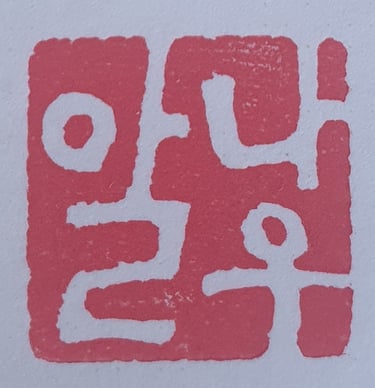The South Korean National Anthem:
"Aegukga" and its history
Introduction
The national anthem of South Korea, known as “Aegukga” (애국가), is an iconic piece that embodies the patriotic spirit and national identity of the country. With a rich history and deep meaning, "Aegukga" plays a crucial role in official ceremonies and national gatherings, reinforcing the sense of unity and pride among Koreans.
Origins and creation
“Aegukga,” which literally translates to "The Song of Love for the Country," was composed in the late 19th century. The lyrics were written by Jeong In-bo, a Korean writer and poet, while the melody was adapted from a Western piece by Ahn Eak-tai, an influential composer. Originally, the lyrics were set to the tune of “Auld Lang Syne” by Robert Burns, symbolizing Korea’s cultural openness at the time.
The lyrics of “Aegukga” express a deep love for the homeland, evoking the beauty of Korean landscapes, the strength of the Korean people, and the desire for prosperity and independence. The song reflects feelings of patriotism and resilience, which were especially important during periods of colonization and the struggle for independence.
Lyrics and Meaning
The lyrics of "Aegukga" are highly symbolic. The first verse celebrates the beauty of Korea’s mountains and rivers, while the chorus expresses a fervent wish for the nation’s continued prosperity. The text is a hymn to Korea’s natural beauty and a call for unity and collective strength to face challenges.
Here is an excerpt of the lyrics in Korean, followed by a French translation:
Korean:
동해물과 백두산이 마르고 닳도록
하느님이 보우하사 우리 나라 만세
무궁화 삼천리 화려 강산
대한 사람 대한으로 길이 보전하세
Translation:
Until the East Sea and Mount Baekdu dry up and wear away
May God protect and bless our country forever
The Rose of Sharon, on the three thousand ri, is magnificent, our beautiful land
May the Korean people, with their spirit, preserve the country for eternity
Official Adoption and Revisions
“Aegukga” became the official national anthem of South Korea in 1948, following the establishment of the Republic of Korea. Before this date, the song was used in various contexts and had been adopted as the national anthem during the period of Japanese occupation. The text has undergone several revisions to reflect the nation’s evolution, but the current version has remained relatively stable since its official adoption.
Usage and Symbolism
“Aegukga” is played during many official occasions, such as the opening ceremonies of the Olympics, diplomatic events, and national celebrations. During these events, the anthem is often accompanied by the raising of the national flag, reinforcing its role as a symbol of national unity and pride.
Additionally, the anthem is frequently performed by choirs and musicians in various contexts, including sporting events and civic gatherings. It plays a key role in civic education, teaching younger generations to honor their country and understand the importance of their cultural heritage.
Conclusion
“Aegukga” is not just a national anthem; it is a powerful symbol of South Korea's identity and resilience. Through its poetic lyrics and fascinating history, it embodies the values of patriotism and unity that continue to resonate deeply within the hearts of Koreans. As a reflection of the country’s natural beauty and the strength of its people, “Aegukga” remains a pillar of Korean culture, inspiring pride and cohesion across generations.
Korean Text:
동해 물과 백두산이 마르고 닳도록
하느님이 보우하사 우리나라 만세
남산 위에 저 소나무 철갑을 두른 듯
바람서리 불변함은 우리 기상일세.
가을 하늘 공활한데 높고 구름 없이
밝은 달은 우리 가슴 일편단심일세.
이 기상과 이 맘으로 충성을 다하여
괴로우나 즐거우나 나라 사랑하세.
무궁화 삼천리 화려강산
대한 사람 대한으로 길이 보전하세.
Translation:
Until the East Sea dries up,
(and) Mount Baekdu wears away,
May the heavens guard our country forever! Long live Korea!
Like the armoured pine on Mount Nam
Standing watch, unshaken
In the wind and frost, may our will be unbreakable!
May the bright autumn moon
In the clear, cloudless sky
Be like our hearts, unwavering, loyal, and true.
With this will and spirit, this loyalty and strength
Let us love, through hardship and joy, our beloved homeland!
Chorus: Fields of hibiscus as far as the eye can see, magnificent rivers and mountains
Protected by its people, may Korea live forever!

